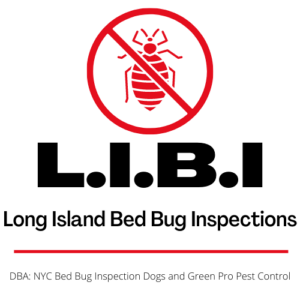Everybody hates bed bugs. It may be the only thing we all agree on. These blood-sucking parasites have little to recommend them, and lay even money even the most dedicated entomologist finds them difficult to love. But bed bugs have been with us for hundreds of years, and it’s unlikely they’re going to disappear any time soon. So it really is important to understand their behavior and figure out how they tick.
Last time we talked about common bed bug myths. So this time out let’s flip the script and look at some interesting bed bug facts that everyone should know.
1 – Bed Bugs are Smarter than You Think
It’s a struggle to find anything positive to say about bed bugs. They’re invasive, their bites are itchy and irritating, and they’re the very devil to eliminate. But if I had to find one think to say in their favor it would be this – bed bugs are smart little critters. They know when to hide and when to hunt. They know when their prey (that would be us by the way) is vulnerable and when we’re on alert.
Bed bugs have a finely honed survival instinct. Once they’ve infested a home or office they quickly adapt to the schedule and behavior of their hosts. They learn when to come out of hiding to hunt and feed and when to scuttle back into the shadows to avoid detection. In short, they’re clever parasites.
2 – Bed Bugs Only Feed on Blood
Bed bugs only feed on living blood. That means the blood must be drawn from a living host. Spilled blood simply won’t do. Blood is the total extent of their diet and without it they’ll die. Unfortunately the average bed bug can survive for months between feedings. So even if a blood meal is not readily available the bed bug still has patience on its side.
Bed bugs prefer the blood of human hosts, but they’ve been known to feed on other animals when necessary. If a bed bug needs to eat, and can’t easily access a human host, it will happily feed on any mammal or bird to which they can gain access. That means pets are also vulnerable to bed bug attack.
3 – Bed Bug Mating Habits
Bed bugs reproduce via a method called ‘traumatic insemination’. The process is as violent as it is successful. The male bed bug will forcibly break into the female bed bug’s abdomen in an effort to inseminate her. If he’s successful the female will remain pregnant for the rest of her life and will not mate again.
A pregnant female bed bug lays up to five eggs per day. Over the span of her life she will lay between 300 and 400 eggs. These eggs are quick to hatch, with infant bed bugs emerging in about ten days. The infants, or nymphs, are quick to grow into adulthood and the bed bug life-cycle continues on.
4 – Bed Bugs Carry their Own Anesthetic
Have you ever wondered why people rarely, if ever, feel a bed bug biting them during an attack? Part of the reason is bed bugs tend to feed while their hosts are asleep. But that’s not the only thing preventing a victim from feeling a bed bug’s bite during the feeding process.
Bed bugs actually have their own natural anesthetic. Chemical compounds in the bed bug’s saliva serve to anesthetize their victims so they never feel the initial attack. It’s only after the fact that we begin to notice the itching and irritation caused by the bite. This is an important evolutionary adaptation that allows bed bugs to feed on their hosts and return to their hiding places without the victim being aware of what’s happening to them.
5 – Bed Bugs Don’t Carry Diseases
Finally a bit of good news. Studies have shown that bed bugs do not carry, nor do they transmit, diseases to their hosts. Yes, the bites can be irritating and if not properly treated they can become infected. But a bed bug bite does not expose you to any disease. It’s one of the more reassuring facts about bed bugs and a good place to stop for the day.
Protecting Yourself from a Bed Bug Invasion
Bed bugs are a pest that have proven difficult to eradicate. We may win a few battles but ultimately the war goes on. The best protection against bed bugs is early detection. If you suspect your home may have been exposed to bed bugs now is the time to schedule a professional bed bug inspection. If your inspector finds signs of bed bug activity you should schedule treatment at the earliest opportunity. The sooner you act the better chance you have of avoiding a full scale bed bug infestation.
Published by Scott Palatnik
If you believe you’ve brought bed bugs into your home or office, give us a call, we can help!
Now with 2 locations. On Long Island @ 516-619-6149, or in NYC @ 212-299-9186
We are Long Island Bedbug Inspections.
Your Bedbug Inspection, and Elimination solution.


